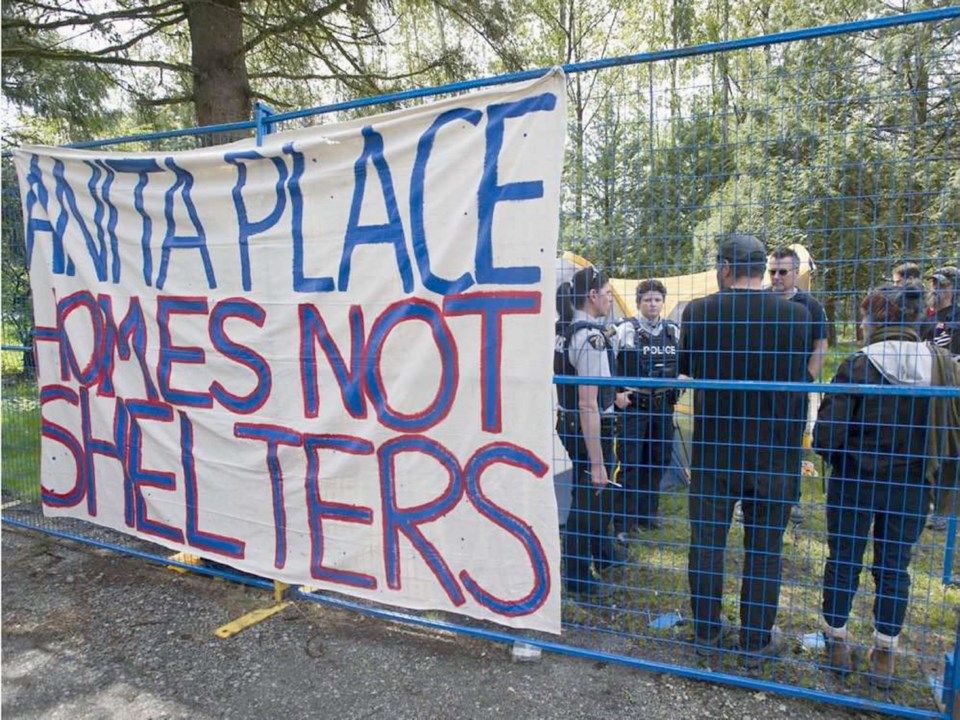VANCOUVER — B.C.’s Supreme Court has granted an injunction that will allow the City of Maple Ridge to address a number of safety issues at the embattled Anita Place Tent City.
The court has agreed that Maple Ridge has the right to remove accelerants, electrical connections and other materials posing a fire risk. “The injunction order also provides guidance on the RCMP’s role in ensuring that the court order can be carried out without obstruction,” said the city in a statement.
The city applied in December to enforce safety orders and injunctions against Anita Place, where there have been six fires since the tent city sprang up a year and a half ago.
The ruling was not a complete victory for the city, however.
While Maple Ridge can now make life more difficult for the tent city’s residents by restricting their access to heat at a time when overnight temperatures have dropped below freezing, Justice J. Christopher Grauer agreed that adequate shelter was not available elsewhere and ruled against the city’s bid to have solid structures on the site dismantled and removed.
In April of last year, Maple Ridge’s previous city council rejected a rezoning application for an 85-unit shelter and supportive housing facility.
“A satisfactory answer to the problems raised on this application cannot be found in the courts,” said Grauer in Friday’s decision, urging the city and province to work together on a solution that would end the need for Anita Place. He also acknowledged the vulnerability of the site’s residents, adding, “freezing or burning is a choice no one should have to make.”
While both parties cheered what they saw as small victories in the decision, it was clear from their statements that the court had failed to fully satisfy either side.
“We are thankful that no one has died as a result of the multiple fires in the camp,” said Mayor Mike Morden.
“It greatly concerns me that the court did not specifically grant the city the authority to remove the wooden structures, [but] we are grateful that we have been given the authority to address the other serious fire safety issues that are putting the camp occupants and neighbourhood at risk.”
The injunction also grants Maple Ridge the ability to identify those living in the camp, to determine who needs housing and any additional support services, according to the city. It had sought an order compelling residents to provide ID or, failing that, agree to be photographed and give their names.
The Pivot Legal Society, a human-rights organization representing the tent city’s residents, said it plans to appeal aspects of the ruling, though it celebrated the decision to preserve the structures, ensuring the residents would be sheltered from the elements, at the very least.
“We are encouraged by a number of statements coming from the court recognizing the urgent situation at Anita Place and governments’ responsibilities in addressing the issue of homelessness,” Pivot said in a statement. “We are very disappointed, however, that the decision does not address the provision of the life safety necessities required to support homeless residents, particularly the ability to keep themselves warm.”
Pivot said it hopes to appeal the enforcement orders and verification and exclusion order.
It said it will continue to fight for the safety of its clients, “who have shown tremendous courage and resilience throughout this trying process.”
Maple Ridge plans to begin implementing the court order immediately.



